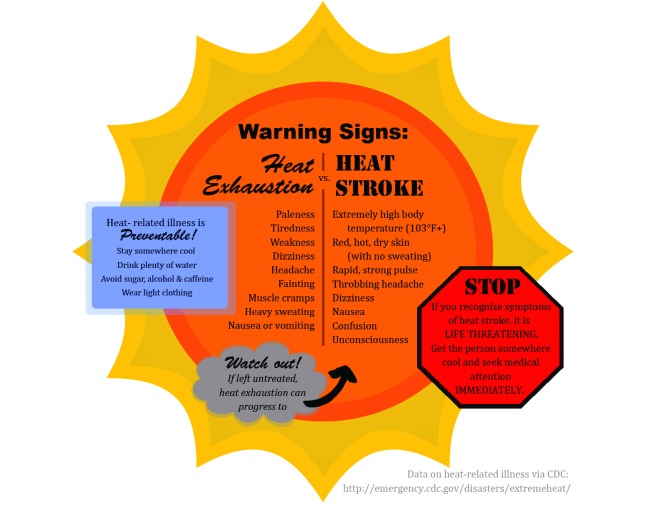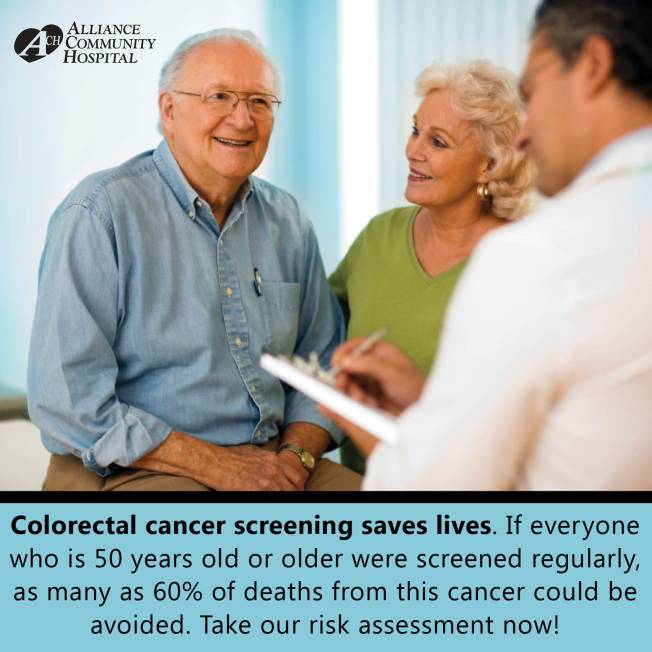 By Kelly Tomasic, M.D. Family Physician,
By Kelly Tomasic, M.D. Family Physician,
Alliance Community Medical Foundation, LLC
It’s finally here, the summer weather we longed for during the dead of winter. Flip flops and shorts have made their yearly reappearance, along with swimsuits and sun screen. Beaches are once again littered with sun-worshipers and family barbecues. While we may love basking in the heat, too much exposure to extreme temperatures can produce disastrous and sometimes deadly results.
Heat-related illnesses are a result of an individual’s inability to regulate his or her body temperature in hot weather. Heat exhaustion and Heat stroke are among the most common. Individuals at greatest risk of developing Heat exhaustion or Heat stroke include: infants and children up to 4 years old, people 65 and older, and individuals who over-exert during work or exercise, are overweight, ill or on certain medications.
Heat exhaustion may occur after an individual has developed dehydration (a loss of electrolytes due to excessive perspiration and insufficient fluid intake) and to being exposed to high temperatures for several continuous days. Heat exhaustion is also associated with a high heat index, a measurement of how hot we feel when humidity levels and air temperature are combined. Individuals who live in urban areas may be at a greater risk of developing heat exhaustion during a prolonged heat wave, especially if there is a high heat index and poor air quality. This is known as the “heat island effect,” a process in which asphalt and concrete store heat during the day and only slowly release it at night, thus causing higher nighttime temperatures.
There are two main causes of Heat exhaustion: water depletion, which may cause an individual to have excessive thirst, weakness, headache, or loss of consciousness, and salt depletion, in which an individual may experience vomiting, frequent muscle cramps, or dizziness.
The most common signs and symptoms of heat exhaustion include: confusion, dark-colored urine (an indication of dehydration), dizziness, fainting, fatigue, headache, muscle cramps, nausea, pale skin, excessive sweating and a rapid heartbeat.
If an individual is suffering from heat exhaustion, it is vital to get him or her out of the heat immediately. If it is not possible to go inside, move the individual to the nearest cool and shady place so he or she can rest. Other recommended treatments include: having the individual drink plenty of non-caffeinated and non-alcoholic beverages, removing tight or unnecessary clothing, taking a cool shower or bath, and using fans or ice towels to cool down the body. If the individual is still suffering after 30 minutes, contact a doctor as untreated heat exhaustion can progress to heat stroke, which may damage the brain and other vital organs, and in some cases, cause death.
Heat stroke is a result of prolonged exposure to high temperatures. Dehydration may also be a contributing factor. Heat stroke causes an individual’s body temperature controlling system to fail. It commonly affects infants and children up to age 4, adults over age 65 and individuals with chronic health conditions, but may also cause problems among healthy young athletes. Other groups at risk include: people of any age who don’t drink enough water and people who drink excessive amounts of alcohol.
The most characteristic symptom of heat stroke is a core body temperature above 105 degrees Fahrenheit. Other symptoms include: throbbing headache, dizziness and light-headedness, lack of sweating despite the heat, red, hot, and dry skin, muscle weakness or cramps, nausea and vomiting, rapid heartbeat, which may be either strong or weak, rapid, shallow breathing, confusion, disorientation, staggering, seizures, and unconsciousness.
If an individual is suffering from Heat stroke, immediately call 911 or transport him or her to a hospital. As with Heat exhaustion, move the individual to an air-conditioned environment or a cool, shady area and remove any unnecessary clothing. Focus your attention on cooling down his or her body temperature. This can be accomplished by fanning air over the patient while wetting his or her skin with water or by applying ice packs to armpits, groin, neck, and back. These areas are rich with blood vessels close to the surface of the skin and may aid in reducing the individual’s body temperature faster. If it is possible, immerse the patient in a shower or tub of cool ice water. If emergency response is delayed, call the hospital emergency room for additional instructions. Untreated Heat stroke may progress to coma or heat-related deaths due to kidney failure, heart failure or heat-induced brain damage.

When temperatures reach record highs, finding ways to stay cool are your best defenses against Heat exhaustion, Heat Stroke and other heat-related illnesses. Simple lifestyle changes may help to make the summer months more bearable.
Medicincenet.com offers the following tips for staying cool during the summer:
- Alter your pattern of outdoor exercise to take advantage of cooler times (early morning or late evening)
- Wear loose-fitting clothing, preferably of a light color. Cotton clothing will keep you cooler than many synthetics. Also protect yourself from the sun by wearing a wide-brimmed hat and sunglasses.
- Avoid sunburn. Stay in the shade and use sunscreen with an SPF of at least 30.
- Keep your home cool. Open windows, close shades, use an air conditioner.
- Fill a spray bottle with water and keep it in the refrigerator for a quick refreshing spray to your face after being outdoors.
- Fans can help circulate air and make you feel cooler even in an air-conditioned house. Applying cool water mist or wet towels before sitting in front of a fan is a quick way to cool off.
- Try storing lotions or cosmetic toners in the refrigerator to use on hot, overtired feet.
- Keep plastic bottles of water in the freezer; grab one when you’re ready to go outside. As the ice melts, you’ll have a supply of cold water with you.
- Pour a bit of ice cold water into a hat and then quickly place it on your head.
- Avoid caffeine and alcohol as these will promote dehydration. Drink cool, non-alcoholic beverages (water, sports drinks or other sources of electrolytes); don’t wait until you are thirsty.
- Try lighter, more frequent small meals or snacks containing cold fruit or low fat dairy products. As an added benefit, you won’t have to cook next to a hot stove. Or try grilling outdoors.
- If you don’t have air-conditioning, arrange to spend parts of the day in a shopping mall, public library, Movie Theater, or other public space that is cool.
- Use public water parks, pools or take a cool bath or shower.
- If the heat is intolerable, stay indoors when you can and avoid activities in direct sunlight or on hot asphalt surfaces.
- Check on family, friends, and neighbors who do not have air conditioning and who spend much of their time alone. Also pay special attention to the elderly, infants, and anyone with a chronic illness, as they may dehydrate easily and be more susceptible to heat-related illnesses.
- Don’t forget about Fido! Pets need protection from dehydration and heat-related illnesses, too.
- Never leave children or pets alone in a parked car.
*Sources: Kelly Tomasic, M.D, webmd.com, Ohio Department of Health, medicinenet.com, MayoClinic.com












